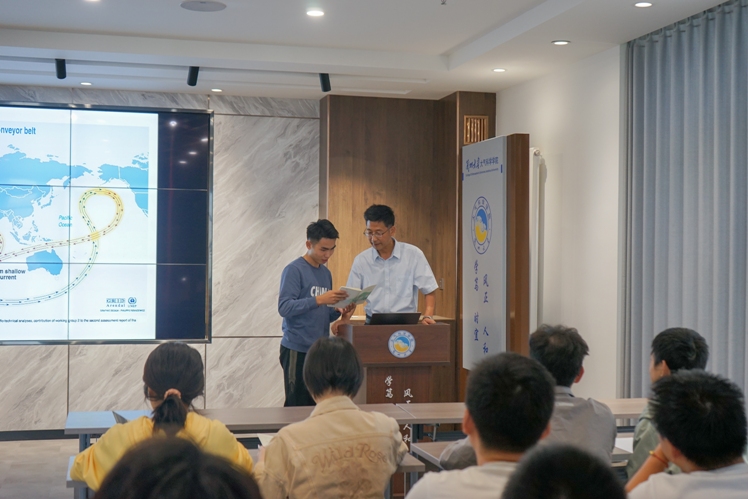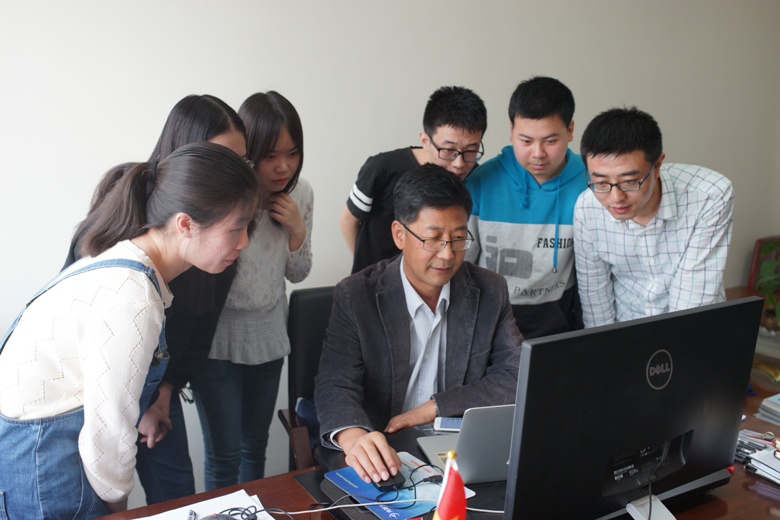After receiving the invitation from the school, I was asked to write some thoughts for the column of 'Tutor's Discussion and Guidance'. I was worried about my limited expression ability. In the present era, there are countless so-called 'chicken soup for soul', 'classics of perception' and 'philosophy of life', but it is not taken for granted that these things should resonate and be transformed into the nutrition of our life. Especially on the topic of education, both parents in law are reasonable and everyone is a teacher. Even though I was afraid, I thanked the school for its trust and gave me this opportunity. I still dared to write a few words, not for preaching, but for expressing my own heart.
Role and goal
Graduate students, as the name implies, are students doing research, not other students. Their permanent goal is to create new knowledge by using old knowledge. It is important to reinforce this role and goal for students at all times. At present, scientific research utilitarianism cannot be eliminated for a long time, which is not only related to the scientific research evaluation system, but also related to the out of focus and unclear role of graduate students. I always ask my students, what are your goals for graduate school? What is the difference between you and undergraduate students? Students often beat around the bush, and I will not hesitate to say: I respect any choice you make after graduation, but as a graduate student, you have to focus on the goal of 'discovery and creation'. You should play the role of a graduate student well, and play the role of an actor as a clown is absolutely forbidden.
Supervisors also need to play their roles well. There are subtle differences between a supervisor and a teacher. In English, it is called a supervisor, which means supervision, and in our context, it means guidance. In essence, the core role of a supervisor is to guide and supervise rather than teach and indoctrinate. We need to guide students to a good research direction or scientific problem, and then supervise them to solve the problem. Don't deviate from the track. Any lack of these two priorities will affect the growth and success of graduate students. Sometimes supervisors help students in all aspects of scientific research. Personally, I think this is not conducive to developing their ability to solve problems.
Material and quality

I think most people agree that 'what kind of teachers teach what kind of students', especially graduate supervisors, whose personal research quality has a profound influence on graduate students. No one is perfect. Everyone has some shortcomings or flaws, but as a supervisor, you should do everything possible to be a 'perfect person' in front of students, at least in scientific research. I am always worried that some of my bad words and deeds will be imitated by students, so I always 'admit mistakes' in front of them: I said a sentence carelessly, I wrote a word wrong in an article, I neglected to process data, and so on. In this way, students will have a cognition invisibly: is wrong terrible? What they fear most is to cover up their mistakes. As long as they dare to admit their mistakes and correct them in time, the teachers will not treat me badly. The teachers are also making mistakes. Confucius said, 'If you make errors, don't be afraid to correct.' This is probably what he meant.
The methods of supervisors guiding students vary greatly, each with its advantages and disadvantages, but I believe that no one can be universally applicable. Some students need to be encouraged and cared for, while others need to be encouraged and restrained. Students with different endowments and materials should use different guidance methods in the right direction, that is, the so-called 'guidance according to material'.
Egoism and altruism

I once discussed this question with my students: As a teacher, which is better, Confucius or Guiguzi (assuming that the legend about Guiguzi as a teacher is true)? Both of them have taught famous students, but their influence and role on society are different. We should guide students to form an academic view of self-interest in scientific research, rather than sophisticated egoism. There is nothing wrong with students pursuing their own interests as graduate students. However, the ultimate goal of scientific research is altruistic. It is to enrich science and benefit mankind. To be more specific, it requires a sense of family and country. Although this argument is high, it is necessary for us to emphasize it to students in the current scientific research environment, which is a little eager for quick success and instant benefit. Throughout history, it can be found that if sophisticated knowledge is mastered by people without altruism, it has the risk of potential harm to society, just like the students cultivated by Guiguzi.

About the author:
Tian Wenshou, Dean of the College of Atmospheric Sciences of Lanzhou University, a leading talent of the 'National Special Support Plan for High level Talents', a winner of the National Science Fund for Distinguished Young Scholars, and a leader of the innovation team in key fields of the Ministry of Science and Technology. Mainly engaged in the research of tropospheric stratospheric interaction and atmospheric chemistry climate interaction.
